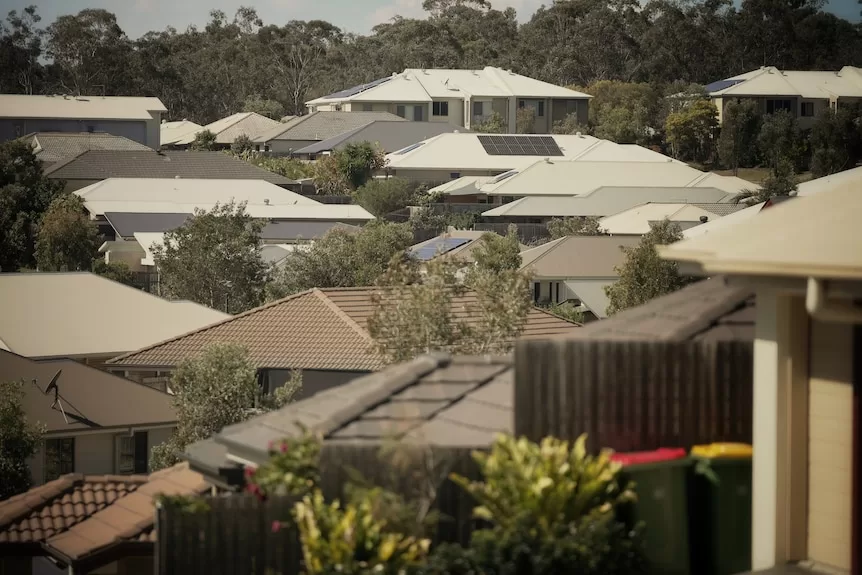- In short: In the wake of new 12-month rental increase limits being introduced in Queensland, the Residential Tenancies Authority says it has issued one fine.
- Rental hikes in Queensland used to be allowed every six months, but the new laws limited increases to once a year.
- What’s next? The government has recently introduced a bill to parliament aimed at tightening these laws by applying the rent increase limit to the property rather than the tenancy.
Queensland’s rental watchdog has finalised just over a dozen investigations in the past 10 months into allegations of landlords hiking their tenants’ rents too many times, with one fine issued.
The state government introduced new laws last year that banned landlords from increasing their tenant’s rent multiple times within a 12-month period.
The Residential Tenancies Authority (RTA) confirmed that since the rules came into effect on July 1, it had received and finalised 14 investigations involving alleged offences relating to the frequency of rental rises.
It also conciliated more than 300 disputes over the same period where “rent increase” was listed as a reason for the disagreement.
But these disputes, which included 17 received before July 1, could have related to issues beyond the frequency of rental hikes, such as the amount by which someone’s rent was increased.
An RTA spokesperson said off the back of the 14 investigations it finalised, one penalty infringement notice was issued while eight notices of non-compliance were also given out.
For five of the investigations, no further action was taken.
The RTA spokesperson said the maximum penalty for property owners or managers who failed to comply with the rental frequency rule was a $3,096 fine.
“If a customer believes a property manager/owner hasn’t met their legal obligations, they can contact the RTA for information or submit an investigation request with us,” the spokesperson said.
“The RTA is an impartial regulator and determines whether a breach of the act has occurred on a case-by-case basis, after investigating a request thoroughly and considering all the facts.”
Government tightening rent increase rule
Prior to July 1 last year, rent increases in Queensland were limited to once every six months.
Data published in the RTA’s most recent annual report shows it investigated 764 alleged rental law offences in 2022-23, with less than one per cent relating to rent increases before the minimum period.
When the government unveiled its new law last year to limit rent increases to every 12 months instead of six months, it insisted the move would give renters a “fairer go”.
However, it has already moved to change the legislation – citing concerns that the rules could be circumvented.
Under the existing laws, the rent frequency rule applies to a tenancy – not the property that is being leased out.
It means, for example, a landlord can lease out their property to one tenant for six months at one rate, and then increase the rent if they take on a new tenant for the remainder of that year.
The government currently has a bill before parliament aimed at tightening up the laws by ensuring the 12-month rental increase rule applies to the property rather than the tenancy.
In a statement, Housing Minister Meaghan Scanlon said the new data from the RTA showed “some progress has happened”.
“Through our plan, we’re also making sure the RTA takes more of a proactive enforcement approach to make sure people comply with these reforms,” she said.
Voided tenancy agreements
The rent frequency rule introduced last year was retrospective and meant any leases signed prior to July 1 that contained multiple rent increases within a 12-month period were deemed invalid.
In a recent submission to a Queensland parliamentary committee, the Real Estate Institute of Queensland (REIQ) suggested many parties subsequently did not know what to do if their tenancy agreements were voided.
“Lessors were not given time to plan or budget for the changes which retrospectively impacted their tenancies,” they wrote.
“This caused a number of lessors to choose not to renew tenancies, on the basis of previously agreed terms being deemed invalid.”
The REIQ is opposed tying the rent increase rule to the property rather than the tenant, arguing in its submission that this would cause “further instability” and that the change is “no longer warranted”.
“It is now understood and accepted that rent can only be increased once per 12 month period,” the organisation wrote.
Get local news, stories, community events, recipes and more each fortnight.
